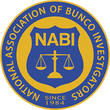South African Switch
In the South African Charity Switch you are approached by someone who claims he is a recent arrival from South Africa. He says he has a large amount of money and needs help to get to a certain location. During this conversation, another stranger enters the scene and offers to assist the South African who shows you both a large sum of money and explains he cannot take it back to Africa. He offers you both a portion and then asks that you contribute the remainder to charity. He asks that you both first put up "good faith money" to show that you are responsible with your money, by proving you have accumulated savings. To substantiate your caution, you withdraw money from your account in the amount of $5,000, in cash. Both you and the generous duo get into your vehicle. One con suggests that you all pray over the money. The other con handles the cash and places it into a scarf referred to as a "prayer cloth." After the prayer, you drop off the suspects in the shopping center parking lot. After doing so, you look into the scarf and realize that your cash is gone and that the scarf contains only cut'up newspaper.
A man with a foreign accent is seeking a hotel or rooming house. He can't read or write and asks for your help. He openly shows a large sum of money and offers to pay for your assistance. Another person will approach and caution the stranger to put the money in a bank. The first suspect replies that he doesn't trust banks, but if you prove you can make a withdrawal, he would gladly consider putting his money in a bank. You go to the bank and make a withdrawal, explaining the ease and safety. Grateful for the demonstration, he reciprocates by taking some of your money and tying it up into his handkerchief with money for "safety." He then shows you how to carry it under the arm or in the bosom. He opens his jacket or shirt and inserts his hand with the kerchief, all the while planning to switch the kerchief for another identical one. The strangers both leave and later, upon examination of your "safe'keeping" handkerchief, you find you have pieces of cut up newspaper instead of money.
Scammers have also been known to approach an elderly person and ask for help in finding a motel or a church, so they can get the victim to give them a ride. During the ride, the isolated driver is told a story concerning collecting money and asked to put up "good faith money" to assist in the collection or donation. After a visit to an ATM the suspects then find an excuse to leave the car, with the money, and are not seen again.
A man with a foreign accent is seeking a hotel or rooming house. He can't read or write and asks for your help. He openly shows a large sum of money and offers to pay for your assistance. Another person will approach and caution the stranger to put the money in a bank. The first suspect replies that he doesn't trust banks, but if you prove you can make a withdrawal, he would gladly consider putting his money in a bank. You go to the bank and make a withdrawal, explaining the ease and safety. Grateful for the demonstration, he reciprocates by taking some of your money and tying it up into his handkerchief with money for "safety." He then shows you how to carry it under the arm or in the bosom. He opens his jacket or shirt and inserts his hand with the kerchief, all the while planning to switch the kerchief for another identical one. The strangers both leave and later, upon examination of your "safe'keeping" handkerchief, you find you have pieces of cut up newspaper instead of money.
Scammers have also been known to approach an elderly person and ask for help in finding a motel or a church, so they can get the victim to give them a ride. During the ride, the isolated driver is told a story concerning collecting money and asked to put up "good faith money" to assist in the collection or donation. After a visit to an ATM the suspects then find an excuse to leave the car, with the money, and are not seen again.
